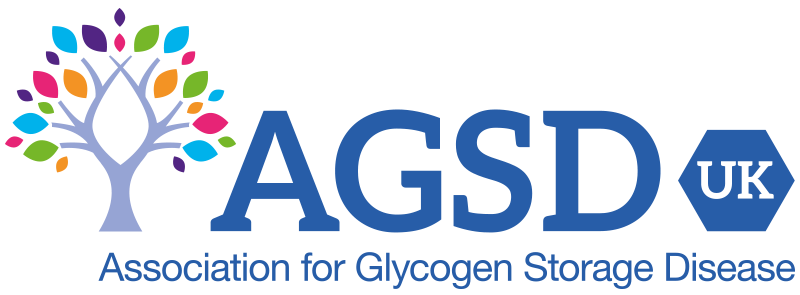Glucose is a major source of energy for the body. It is stored in the form of glycogen in both the liver and muscles and later released with the help of enzymes.
Persons affected by Glycogen Storage Disease (GSD) have an inherited defect in one of the enzymes responsible for forming glycogen, or for releasing glucose from glycogen as it is needed by the body during activity and/or between meals. Patients and their families affected by all variants of GSD are supported by AGSD-UK.
Mainly it is liver or muscles that are involved
GSD can affect the liver, the muscles or both. Diagnosis of the GSD variant is made on the basis of an individual’s symptoms, the results of a physical examination and of biochemical tests.
Diagnostic methods
Occasionally a muscle or liver biopsy is required to clarify the actual enzyme defect. However, increasingly DNA testing is able to make the diagnosis, or confirm it after other testing.

All GSDs pulling together makes us all stronger.
